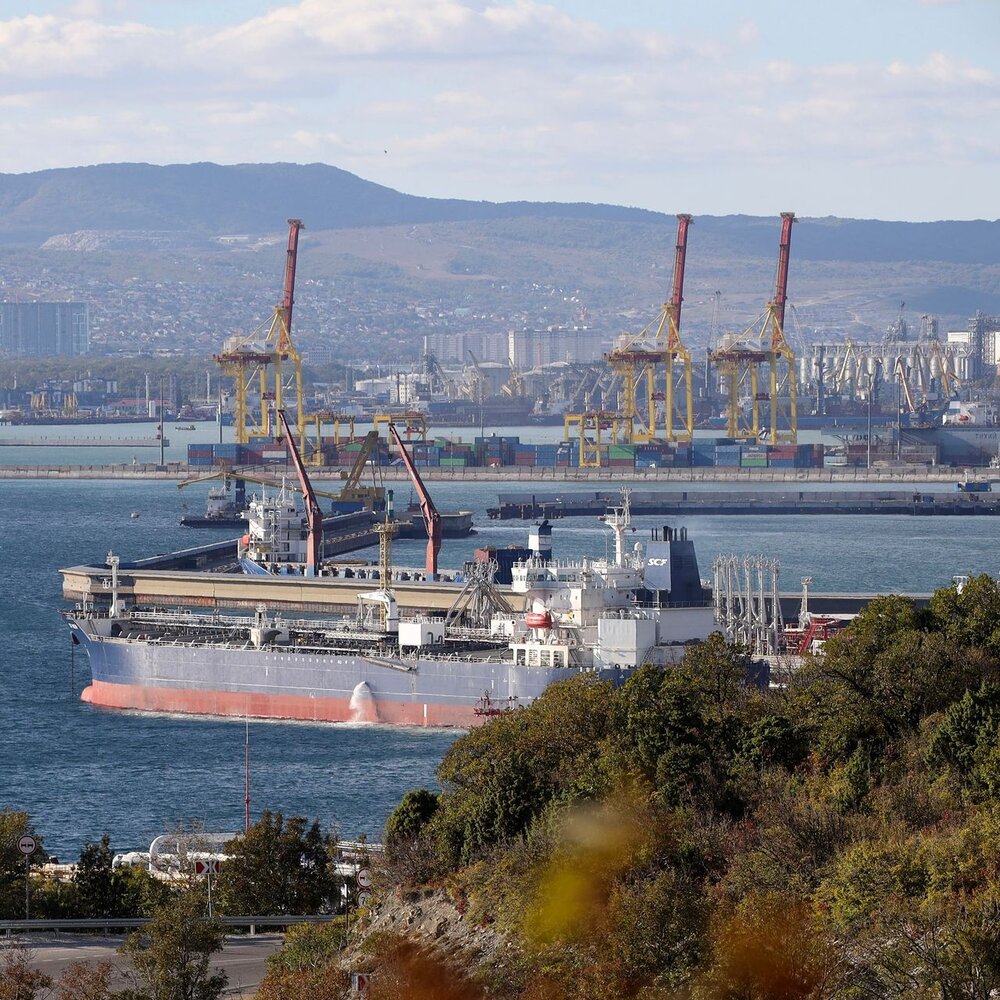TEHRAN- The decision by the G7, the European Union, and Australia to impose $60-per-barrel price cap on Russian will backfire amid a global energy market already in turbulence.
The idea of creating some type of oil cartel among the G7, EU, and Australia, while encouraging other countries to apply the price cap on Russia, is another poorly thought-out policy.
The goal of the latest sanctions on Russia is to try and control oil prices, despite the fact that this group of nations have little to no oil reserves themselves.
Can this group of nations control oil prices?
The simple answer is no.
To achieve this goal, the G7, the EU and Australia will need all the oil customers to get on side.
This is not a measure that the Organization of the Petroleum Exporting Countries of 13 countries (OPEC) as well as OPEC+ and their allies will entertain.
While the Western insurance companies enjoy the lion's share of maritime trade for oil tankers, Russia still has many customers seeking its oil in Asia, Africa and Latin America.
There are many places where Russian oil is being welcomed.
Essentially, this will stimulate the development of alternative sources of insurance.
In other words, the West's neo-monopoly on this key element of global shipping will most likely break up.
According to experts, countries such as India are insuring Russian tankers. Analysts say China is well on its way in developing insurance for Moscow as well.
Other countries may very well follow suit, which means Moscow will still be able to sell its oil but shift its business to the East and elsewhere instead of the West.
It's a clear example of how these badly thought-out measures by the West are backfiring or set to backfire.
In early December, the G7, the European Union and Australia agreed to a $60-per-barrel price cap on Russian seaborne crude oil.
It is the latest in a long and unprecedented list of punitive measures and sanctions the West has imposed on Russia following the outbreak of the Ukraine war in February.
This is while reports have emerged indicating the Russian economy is improving is and on the path to further improvement.
However, countries across Europe are suffering from record inflation levels and a cost of living crisis not seen in decades as a result of the conflict in Ukraine.
Energy prices on the continent have already skyrocketed as a result of sanctions on Russian gas.
Families across Europe are having to make the difficult choice this winter of either switching the heating on or putting food on the table.
The Kremlin has accused the West and the United States in particular of refusing to sit down for peace talks to settle the crisis in Eastern Europe.
The Russian oil price cap is more than likely to raise the price of oil for ordinary households living in the West.
Dmitry Medvedev, the politician serving as the deputy chairman of the Russian Security Council, says it is possible to anticipate a spike in oil prices during 2023 to the level of $120 dollars per barrel.
This may be a speculation but it is based on the realities of the market when Russian oil or another major supplier of oil is taken out of the global market.
Russia is denying the sale of its oil to any country that applies the price cap and Moscow says it is ready to cut its oil exports accordingly.
Whenever there are cuts in the global oil market, the price of the commodity goes up.
President Vladimir Putin has delivered Russia’s response to the price cap, signing a decree that bans the supply of crude oil and oil products to nations that impose the cap.
According to the decree which has been published on the Kremlin's website, the Russian ban will come into effect on 1 February and will last for at least five months.
The decree has been presented as a direct response to what the Kremlin called “actions that are unfriendly and contradictory to international law by the United States and foreign states and international organizations joining them”.
“Deliveries of Russian oil and oil products to foreign entities and individuals are banned, on the condition that in the contracts for these supplies, the use of a maximum price fixing mechanism is directly or indirectly envisaged,” the decree said, with specifical reference to the U.S. and other foreign states that have imposed the price cap.
It won't be surprising to see that motorists at the gas pumps in the U.S. will see a significant rise in prices while pumping their cars.
Another example of how U.S. government measures aimed at Washington's foes boomerang.
This type of price cap was not even seen during the era of the Cold War between the West and the Soviet Union.
While it is aimed at crippling the Russian economy and Moscow’s military operations in Ukraine, the endless amount of measures the West has taken since the war started has failed to end Russian military operations.
Analysts have also said the latest move will have little impact on the oil revenues that Moscow is currently earning.
EU countries have separately implemented an embargo that prohibits them from purchasing seaborne Russian oil as well caps on the country's gas.
But the widescale effects of the EU ban on Russian energy will go down in history as one of the biggest mistakes the 27-member European bloc has made as its own people suffer from the heavy consequences.


No comments:
Post a Comment